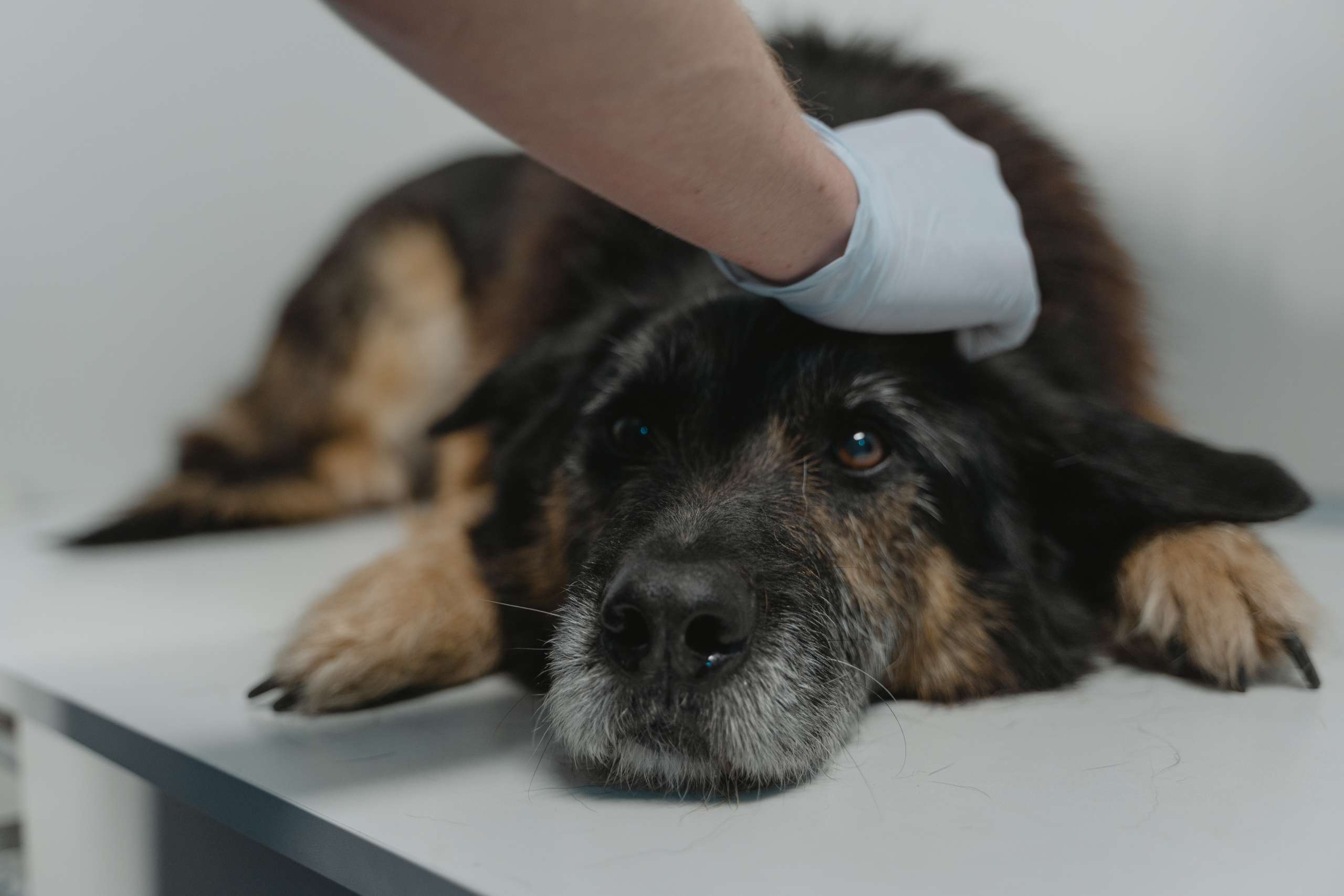


A common misconception is that anemia in dogs is a condition. In fact, anemia is a symptom. Finding the underlying cause of your dog’s anemia is the key to correctly treating it. Some of the most common signs of canine anemia are lethargy and loss of appetite.
If you think your dog may be anemic, keep reading to learn more about the signs and causes of anemia, and discover medical interventions and home remedies to help you care for your furry companion.
What Causes Anemia in Dogs?
Canine anemia occurs when the body doesn’t have enough red blood cells circulating in the blood for the body to function normally. Anemia can be divided into two categories — regenerative and nonregenerative.
Types of Canine Anemia
Regenerative anemia is caused by rapid blood loss, severe parasite infestations, or when the body loses red blood cells faster than it can make new ones.



Types of regenerative anemia include:
- Blood loss anemia – which is a result from severe blood loss due to injury, accident, surgery, or bleeding disorder.
- Immune-mediated or hemolytic anemia — this type of anemia often comes from a hereditary disease or by toxins, low phosphorus levels or parasites.
Nonregenerative anemia happens when the bone marrow isn’t making new red blood cells because it is either damaged or lost normal function. It can also be caused by nutritional or mineral deficiencies.
Types of nonregenerative anemia include:
- Methemoglobinemia – Some dogs have too much methemoglobin in their blood, which results in methemoglobinemia. Other causes include human medications (such as ibuprofen, benzocaine, or acetaminophen) and exposure to toxins.
Symptoms of Anemia in Dogs
Dogs with anemia may exhibit one or more of the following:



- Lethargy
- Pale pink or white gums, ears, or eyes
- Loss of appetite
- Increased heart rate/ excessive panting
- Inability to exercise
- Weight loss
- Oral ulcers
- Blood in vomit or stool
- Hypothermia
- Swelling in the jaw or face
- Coprophagia
Anemic dogs act less like themselves and may require extra help from you.
What Should You Do If You Think Your Dog is Anemic?
If your dog is exhibiting signs of anemia, the first thing you should do is take them to your vet. They will be able to determine the root cause of their symptoms. Treatments can vary depending on the underlying issue. Below are typical treatments for the most common causes of anemia.
- Flea Infestation – This is one of the leading causes of anemia in dogs, especially small breeds and puppies. Treating flea infestation is paramount since untreated this condition can be deadly.
- Intestinal Parasites – Anemia caused by hookworms (also known as intestinal parasites or parasitic worms) are treated with a broad-spectrum dewormer and antiparasitic drugs.
- Vitamin Deficiency – Incorporating more iron into your pup’s diet is one way to combat the symptoms of anemia. Adding B12 will help your dog absorb even more iron. Foods like liver, sardines, brown rice, tuna, spinach, barley, and salmon are rich in iron and B12.
- Cancer-Related – Chemotherapy drugs are used to treat this underlying cause of anemia. If the anemia is severe, a blood transfusion may be required.
- Auto-immune Disorder – This underlying cause is treated with immunosuppressive drugs or corticosteroids.
You may not be able to protect your dog from every possible cause of anemia, but you can take steps to lower their risk of developing it.
Don’t skip annual vet visits, during which you should have their stool tested. Monthly broad-spectrum deworming, effective flea and tick control during flea/tick season, and feeding your dog a balanced diet will all contribute to decreasing their risk of developing anemia.
How do Veterinarians Diagnose Anemia in Dogs?
Your vet will do a thorough check of your dog’s health history and inquire about your dog’s symptoms. In order for your vet to determine a diagnosis, they may perform various tests which may include the following:



- Physical examination
- Urine analysis
- Bone marrow testing
- Complete blood count
- Bacterial blood culture
- Serum biochemistry
- X-ray or ultrasound
- Check for internal bleeding
Tip: It can be a scary process for you, but also for your pup. Try to relax and keep your fur-babe comfy with their favorite toys and treats to make it easier on you both.
How is Anemia Treated in Dogs?
It really depends on the severity of your dog’s anemia – your dog may even need a blood transfusion. Your veterinarian will develop a treatment plan that’s specifically made to treat your pet’s underlying condition. Depending on the type of condition, treatment options can vary from medication to surgery.
Some treatments could include the following:



- Gastrointestinal medication
- Parasite or deworming medication
- Intravenous fluids
- Surgery
- Chemotherapy
- Immunosuppressive drugs or antibiotics
- Change in existing medication
- Blood transfusion
- Potassium phosphate supplements
- Bone marrow transfusion
- Micro-dosing with CBD
The prognosis for dogs may vary with anemia in terms of the availability of effective treatment for the underlying cause. Unfortunately, anemia can be an indicator of a fatal or serious condition – including cancer, an autoimmune condition, or poisoning.
If your dog is displaying any signs of anemia, immediately contact your veterinarian to schedule a visit as soon as possible. The key is getting them healthy sooner rather than later!
How Do I Prevent My Dog From Developing Anemia?
The best way to prevent anemia is by preventing the conditions that cause anemia. For instance, keep toxic substances away from your dogs, such as human medications and food. Provide your dog with a healthy diet. Provide your dog with year-round parasite prevention medications to eliminate potential causes of fleas, ticks, and worms.
If your dog is a breed that’s easily susceptible to anemia, regularly take your dog in for check-ups at the vet. At least every six months. Breeds that are susceptible include Labrador Retrievers, Miniature Schnauzers, Shih Tzus, and American Cocker Spaniels.
Is Anemia Fatal for Dogs?
Anemia is caused by several conditions that range from diseases or toxins to injury and autoimmune disorders. So, anemia is definitely a serious symptom for dogs to have. Most importantly, you need to contact your veterinarian for immediate help. It’s important because the cause and treatment determine your dog’s anemia prognosis.
Key Takeaways: Anemia In Dog Treatment



Dogs can become anemic just like humans. It happens when their bodies don’t produce enough hemoglobin or red blood cells. In addition, anemia can be caused by an accident, injury, or condition which causes severe blood loss.
Often, anemia is a symptom of a fatal condition – so it should always be taken seriously. You can prevent your dog from becoming anemic by keeping up with regular vet visits. Also, deworming your dog and treatment against fleas and ticks is essential. Keep your dog away from your food, medication, and other potentially toxic substances.
Emily is a writer who travels full-time in a converted school bus (aka skoolie) with her 5 year old lab mix, Eliot. She is passionate about sustainability and making healthy lifestyle changes. Emily enjoys hiking and exploring the country with Eliot.
